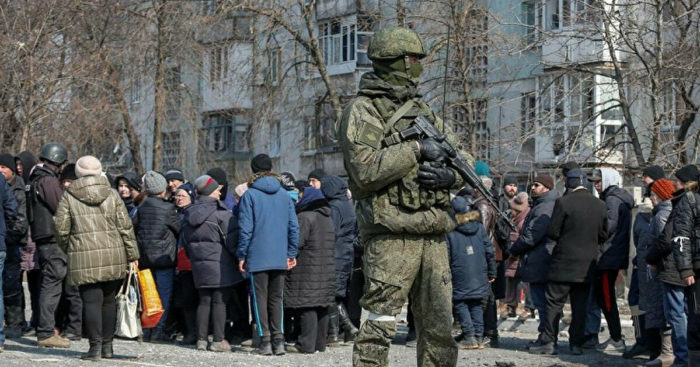According to ISW analysts, Russian President Putin refers to the fight against the Russians as "terrorism." He also calls for the intensification of so-called "law enforcement operations." It is to foster conditions for further repressions and law enforcement crackdowns in the occupied territories of Ukraine, as the latest ISW report states.
Previously, Ukraine's President Zelenskyy has stated that, if necessary, Ukrainian troops will withdraw from Bakhmut to avoid encirclement. However, he does not see the need to do so at this time.
On 5 April, during a press conference in Poland, President Zelenskyy emphasized once more that Ukrainian troops face a highly challenging situation in Bakhmut. Therefore, in the event of encirclement, "corresponding decisions" will be made.
Zelensky's assertion is consistent with other recent statements by Ukrainian officials. In particular, the Ukrainian military command will order a withdrawal from Bakhmut if it is deemed the most strategically sensible course of action.
When they can observe the Ukrainian army's spring counteroffensive, ISW analysts will be able to evaluate the significance of the Bakhmut defense, its effectiveness in deterring Russian forces, and the magnitude of Ukrainian losses.
According to the ISW report, during a meeting with Russia's National Security Council on 5 April, Putin referred to Russia's efforts to strengthen control over Ukraine's occupied territories as "a matter of internal security and the rule of law." He urged Russia to continue economic, legal, and social integration of the occupied Donetsk, Luhansk, Kherson, and Zaporizhzhia Oblasts. Additionally, Putin emphasized the significance of Russia's "restoration" efforts in aiding the integration process in the occupied territories.
Regarding attacks by Ukrainian partisans against the Russian occupiers, Putin highlighted the recent "terrorist attacks" against occupation officials and law enforcement agencies. He also charged Ukraine with endangering the civilian population in the occupied territories.
According to the report's findings, Putin has notably used the concept of "terrorism" and threats to Russian national security to justify domestic repressions. He is probably laying the groundwork for additional repressions and law enforcement crackdowns in occupied territories of Ukraine using similar rhetoric.
While Chinese officials downplayed Russia's close ties, the president of the aggressor country attempted to portray Russia as a reputable world power.
Read also:
Kremlin keeps trying nuclear threats to deter Western arms supplies to Ukraine – ISW
Russian elite infighting will not end war against Ukraine – ISW
Russian winter offensive failed to reach Donetsk and Luhansk borders by March 31 – ISW

